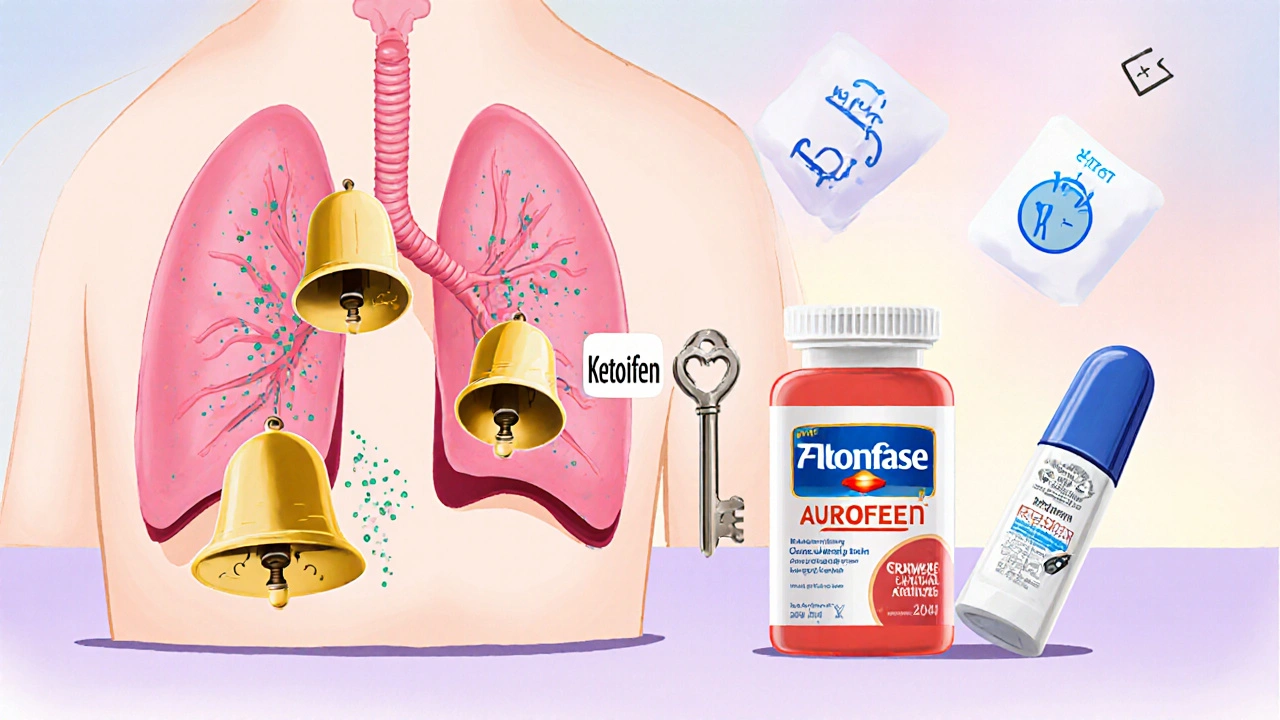Mast Cell Stabilizer: What It Is, How It Works, and What You Need to Know
When your body overreacts to pollen, dust, or pet dander, mast cell stabilizer, a type of medication that prevents immune cells from releasing histamine and other inflammatory chemicals. Also known as mast cell inhibitors, it doesn’t cure allergies—it stops them before they start. Unlike antihistamines that block histamine after it’s released, mast cell stabilizers act like a lock on the door, keeping those immune cells from blowing open and flooding your system with chemicals that cause itching, swelling, and breathing trouble.
These drugs are most commonly used for asthma, a chronic lung condition where airways narrow and swell, often triggered by allergens, and for allergic conjunctivitis, eye allergies that cause redness, itching, and watery eyes. You’ll find them in nasal sprays, inhalers, and eye drops. Cromolyn sodium is the classic example—it’s been around for decades and still works well for mild, predictable allergies. But they’re not fast-acting. If you’re sneezing right now, a mast cell stabilizer won’t help. You need to use it daily, like brushing your teeth, to keep symptoms from flaring up.
They’re often paired with other meds. For example, someone with seasonal allergies might use a mast cell stabilizer nasal spray every morning, then grab an antihistamine if they still feel stuffy. People with exercise-induced asthma sometimes use an inhaler 15 minutes before working out. And unlike steroids, they don’t thin your skin or raise blood sugar, so they’re safe for long-term use—even in kids. But they’re not magic. If your allergies are severe, you’ll likely need something stronger, like leukotriene inhibitors or biologics. Still, for mild to moderate cases, they’re a quiet, reliable tool that’s been trusted for years.
What you’ll find in the articles below isn’t a list of every drug on the market. It’s a practical mix of real-world comparisons: how mast cell stabilizers stack up against other allergy treatments, what they can and can’t do for asthma, and when they’re worth using—or when you’re better off with something else. You’ll see how they fit into daily routines, what side effects actually matter, and which patients benefit most. No fluff. Just what works, what doesn’t, and why.

Ketotifen vs Alternatives: What Works Best for Allergies and Asthma?
Ketotifen is a mast cell stabilizer used for allergies and asthma. Learn how it compares to alternatives like Montelukast, Cromolyn, Zyrtec, and Flonase-and which one might work best for your symptoms.





